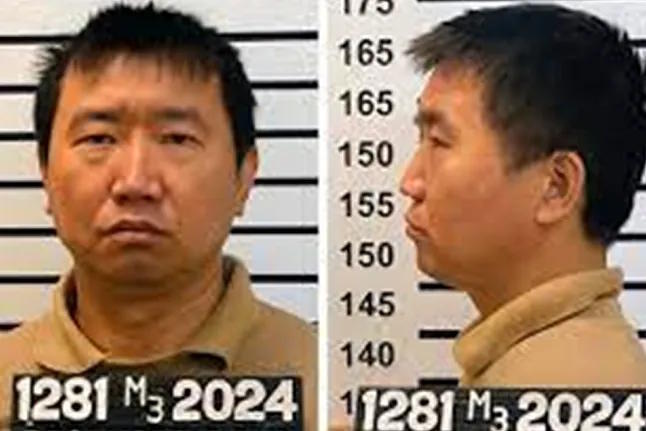Throughout his career as a drug trafficker, Zhi Dong Zhang earned more than twenty nicknames. The most media-friendly, the one that fit best in the headlines about the Chinese man who had woven an extensive fentanyl network starting in China and passing through Mexico, ending in the United States, was "Brother Wang." Depending on which underworld you asked about Zhi, he was also known as "Pancho," "Ku Li Hernandez," "El Chino," "Nelson Mandela," "Mr. T," and "BW2," among others.
Zhi, a petite 38-year-old man from Beijing, had become the bridge between the chemical precursor factory in Asia and the clandestine laboratories of the drug cartels in Mexico. He was responsible for obtaining the necessary materials to prepare fentanyl in his country, as well as in others like Bangladesh and Myanmar. He also handled transportation and money laundering. Since 2016, the DEA had him marked as a top priority in their operations against the synthetic opioid that is causing so much devastation in the United States.
Zhi's story has several movie-like elements: a global drug trafficker, a key player in the popular Sinaloa and Jalisco cartels, who is arrested in Mexico City and, after a striking escape while under house arrest, is arrested again in Cuba after unsuccessfully attempting to flee to Russia.
On Wednesday, news came from the Caribbean island that Cuban authorities had captured the Chinese fentanyl boss, who had escaped from his detention in Mexico in July while awaiting extradition to the US, where he faced an arrest warrant for money laundering charges.
It was in October 2024 when, in a joint operation between the police and the Mexican army, Zhi was arrested in Mexico City. After a few months in pretrial detention, a federal judge decided that the Chinese man would be placed under house arrest. On July 11, he broke his location bracelet and fled through a tunnel connecting his residence to an adjacent house.
Mexican media pointed out that this escape was reminiscent of that of the popular drug lord Chapo Guzman, who escaped from two prisons, the second through a tunnel built for that purpose. Zhi's escape, while under the custody of the National Guard, caused a stir in Mexico, to the extent that the president, Claudia Sheinbaum, publicly questioned the reasons why the judge had released him from prison.
After that escape, two US federal courts issued a new arrest and extradition order for his involvement in "criminal association, drug offenses, and operations with illicit proceeds." He was accused of leading a money laundering network through over a hundred shell companies for more than 20 million dollars between 2020 and 2021.
Zhi handled several fake passports. After leaving Mexico, he unsuccessfully tried to obtain a visa to go to Russia. In the end, he managed to enter Cuba with a false identity. Police reports attribute to him the movement of 1,800 kg of fentanyl, over 1,000 kg of cocaine, and more than 600 kg of methamphetamines.
Fentanyl began to flow out of China to the United States a decade ago. At that time, it was sent directly through international mail. As this opioid 50 times more potent than heroin began to cause the deadliest drug epidemic in US history, authorities in Beijing and Washington began taking measures to stem that regular flow, which found another way to reach American addicts.
Instead of sending final fentanyl shipments - in pills, tablets, and powder - directly to the US, profiles like Zhi found a safer intermediary: the Mexican cartels of Jalisco and Sinaloa. Essential chemical precursors for manufacturing fentanyl now leave China for Mexico, and then it is the drug traffickers who introduce the drug across the US border inside food packages or toy bags.
This is how the opioid wave chain works, which is now the leading cause of death among Americans aged 18 to 45. Last year, nearly 75,000 people died in the US from fentanyl overdoses.
